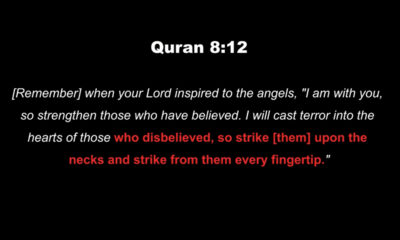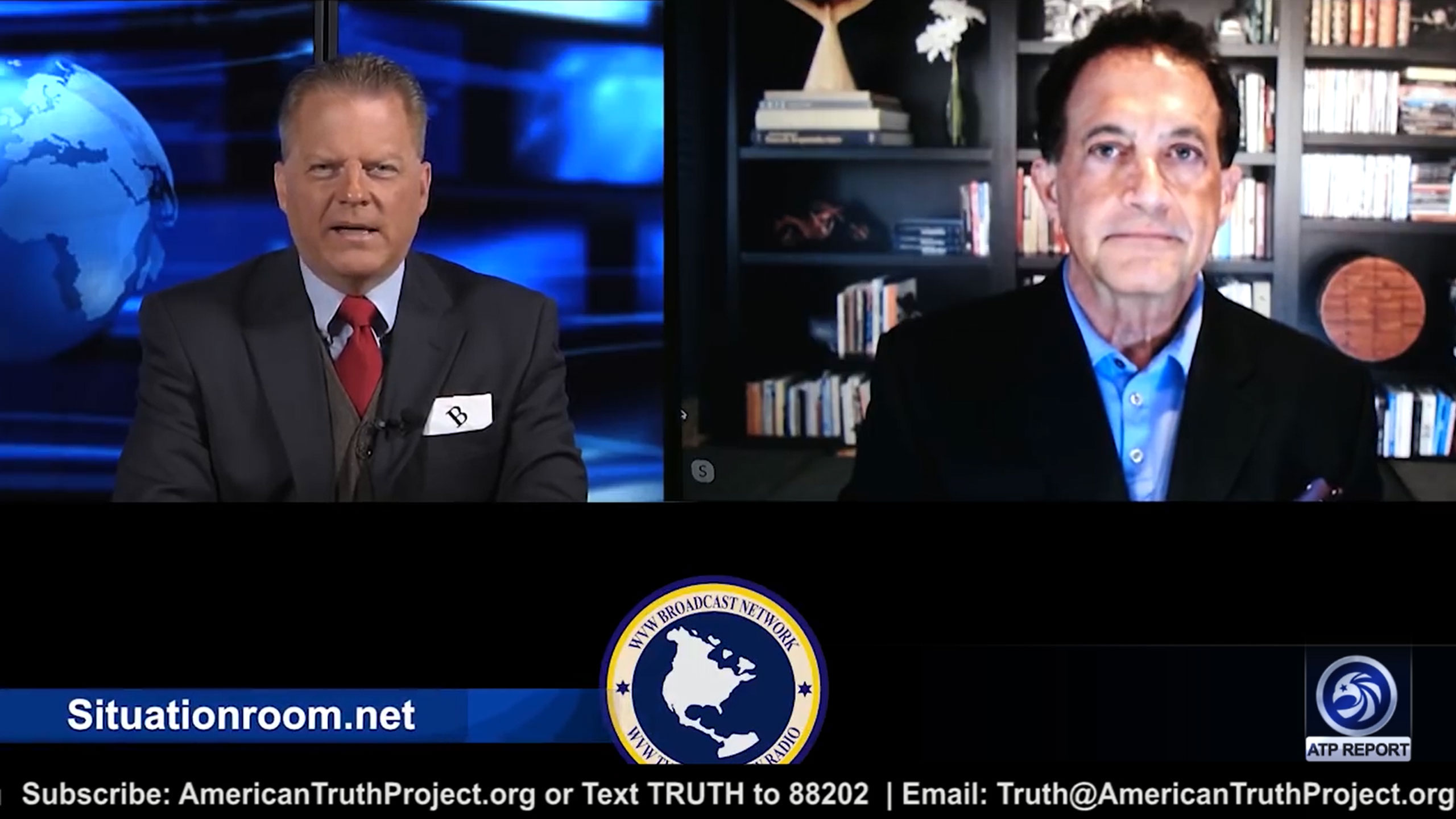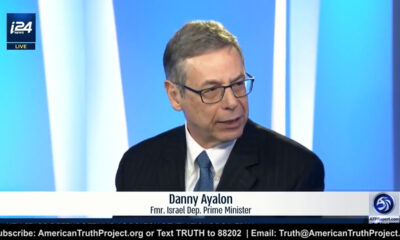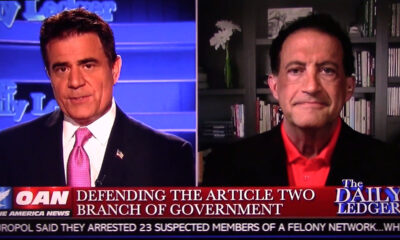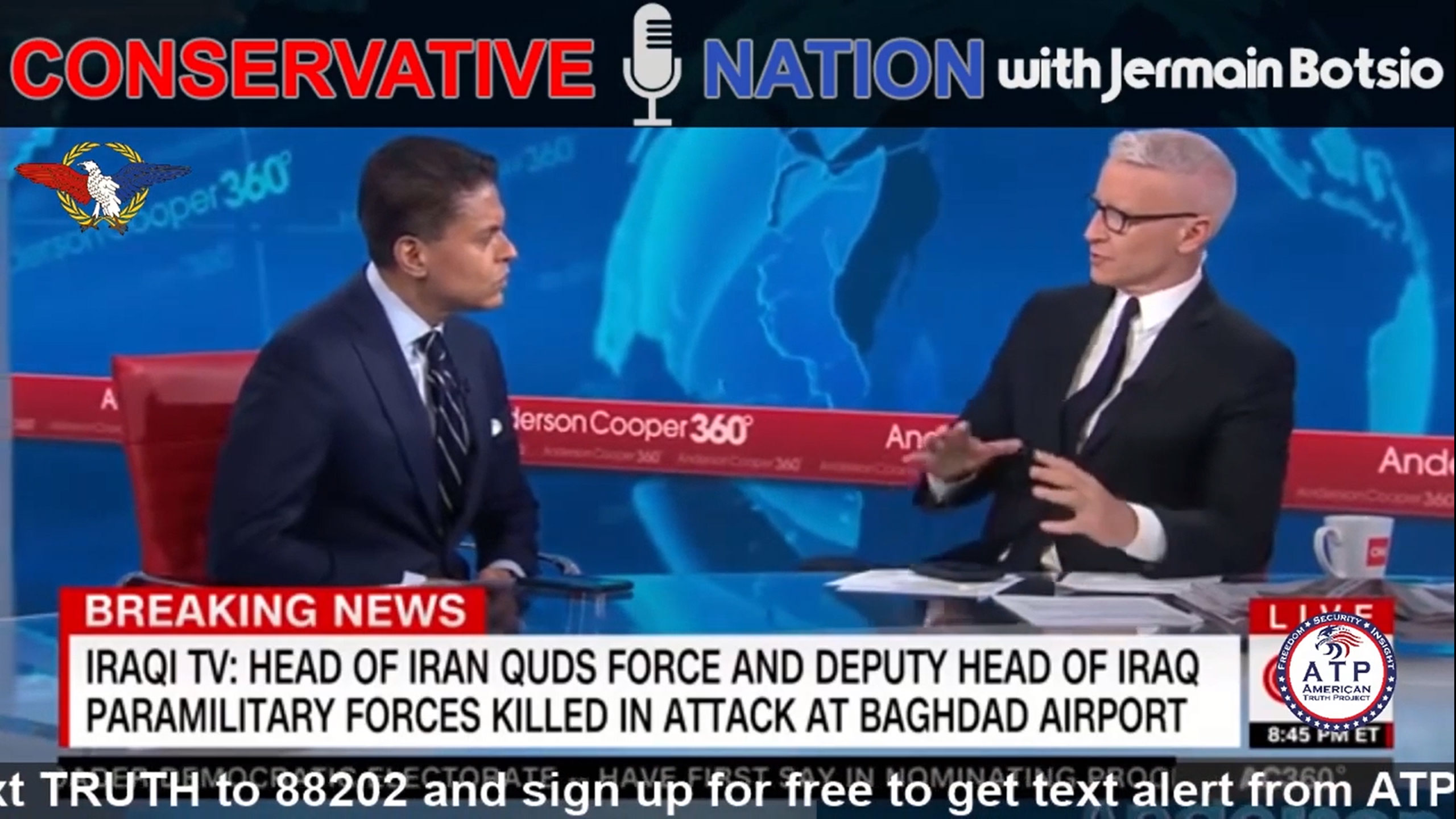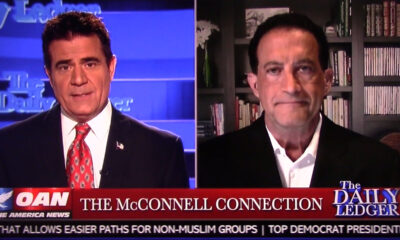Articles
The Iran Plan That Will Work for President Trump

On March 19, 2003, the United States and its allies initiated 21 days of major combat operations in Iraq. Then the victory America won turned into a long, terrible war that we seem to have lost. Iran may also be heading down a war path. But if can see the possible solution that exists within the Iranian people, then we can get to the peace we want.
America and its allies naively presumed that the Iraq war would plant the seeds of democracy into that country’s soil, which would grow and spread throughout the region. It was a hope to turn the non-democratic, Islamic states of that region toward our familiar kind of American democratic republicanism, which would bloom into peace and prosperity.
But peace never came, in the long aftermath of that quick war operation. Battles and attacks then dragged on with devastating violence for years. According to classified US military documents released by WikiLeaks in October 2010, statistics on Iraqi and Coalition deaths from the war show that between January 2004 and December 2009, 109,032 deaths resulted. That total was broken down into “Civilian” (66,081 deaths), “Host Nation” (15,196 deaths), “Enemy” (23,984 deaths), and “Friendly” (3,771 deaths).
In that process, many billions of dollars were spent on weaponry and logistics to try to stabilize the chaotic situation. Complicating the peace attempts, the Islamic Republic of Iran’s agents added to the turmoil. They took advantage of Iraq’s wreckage to expand the Shia regime’s influence; their goal was to export Iran’s Islamic Revolution into Iraq. With a constantly shifting field of militia alliances and countermoves, Iraq and Syria devolved into a horrific terror den for al Qaeda and eventually ISIS to seize territory and impose their bloody control.
Meanwhile, the United States placated other Islamic states in the Middle East, such as Saudi Arabia, the United Arab Emirates, and other monarchical states with no democracy or freedom from Sharia. The people of those countries do not have the right to vote, or any right to criticize their princes and kings. There is no parliament to represent the voice of their people. They have no permissible system to ask for anything other than what their king decides for them. In those Islamic states, there are no western-style courts or judicial laws based on human rights. But still, the United States maintains economic and close diplomatic relationships with such regimes.
But not in the case of Iran. The Shia regime shattered that possible relationship, with its act of warfare against the American Embassy, forty years ago and a nonstop support of terror groups sponsorship ever since. Nevertheless, Iran matters, now more than ever.
Right now, President Trump’s team is weighing the balance of both approaches toward Iran—war, or conciliatory diplomacy. If things get extreme, then it could mean an attack of overwhelming force, if not invasion. Or, if a path of conciliation opens, it could mean a diplomatic tolerance, in the same manner as America handles the rest of the non-democratic Islamic world.
But both of these two strategies are wrong-minded. President Trump wants Iran to come back to the negotiation table. This invitation is offered while Trump has repeatedly warned that he would not allow the Islamic Republic to acquire nuclear weapons. But in either approach, human rights are not the issue addressed.
The danger in Trump’s plan is that if it comes down to invading Iran, there is a strong chance that many Iranians who are now in opposition to the regime will turn to become its allies. They will stand with the Islamic Republic to defend their homeland. They have done so before, and the regime promotes such paranoia in its propaganda against the threat of an invading, foreign enemy.
So, what is there left to do?
The best-case scenario for Iran is more subtle than the binary path that President Trump and his advisers seem to be focused on. It is a path of what are called “Color Revolutions,” which developed in several countries of the former Soviet Union and the Balkans during the early 2000s. Examples are the Bulldozer Revolution (2000) in the Federal Republic of Yugoslavia; Georgia’s Rose Revolution (2003); and Ukraine’s Orange Revolution (2004).
Historically, Iranians have fought for their own liberty, and have striven to make their own modern laws, since 1905 with the Persian Constitutional Revolution. The best strategy which the United States could pursue against the Islamic Republic’s regime would be to help the organizing efforts by Iran’s social communities and its vast wave of youth population. Support them in their general strike. Give them free satellite internet, so they can talk to each other, and can send their strong voice to all international communities and outside media. From that small investment, the Iranian people will simply do the rest as needed to gain their own freedom, and as they wish to.
Kaveh Taheri (Twitter: @TaheriKaveh), American Truth Project contributor, is a Turkey-based Iranian Human Rights researcher and journalist who has worked exclusively on Middle East. Kaveh, who was a former political prisoner in Shiraz, had been sent to prison for his writings and statements on his Websites and Weblogs in Iran and fled the country through Turkey to save his life.
Articles
Have We Forgotten What Happened On 9/11?
Articles
Sharia in the U.S. Judicial System?
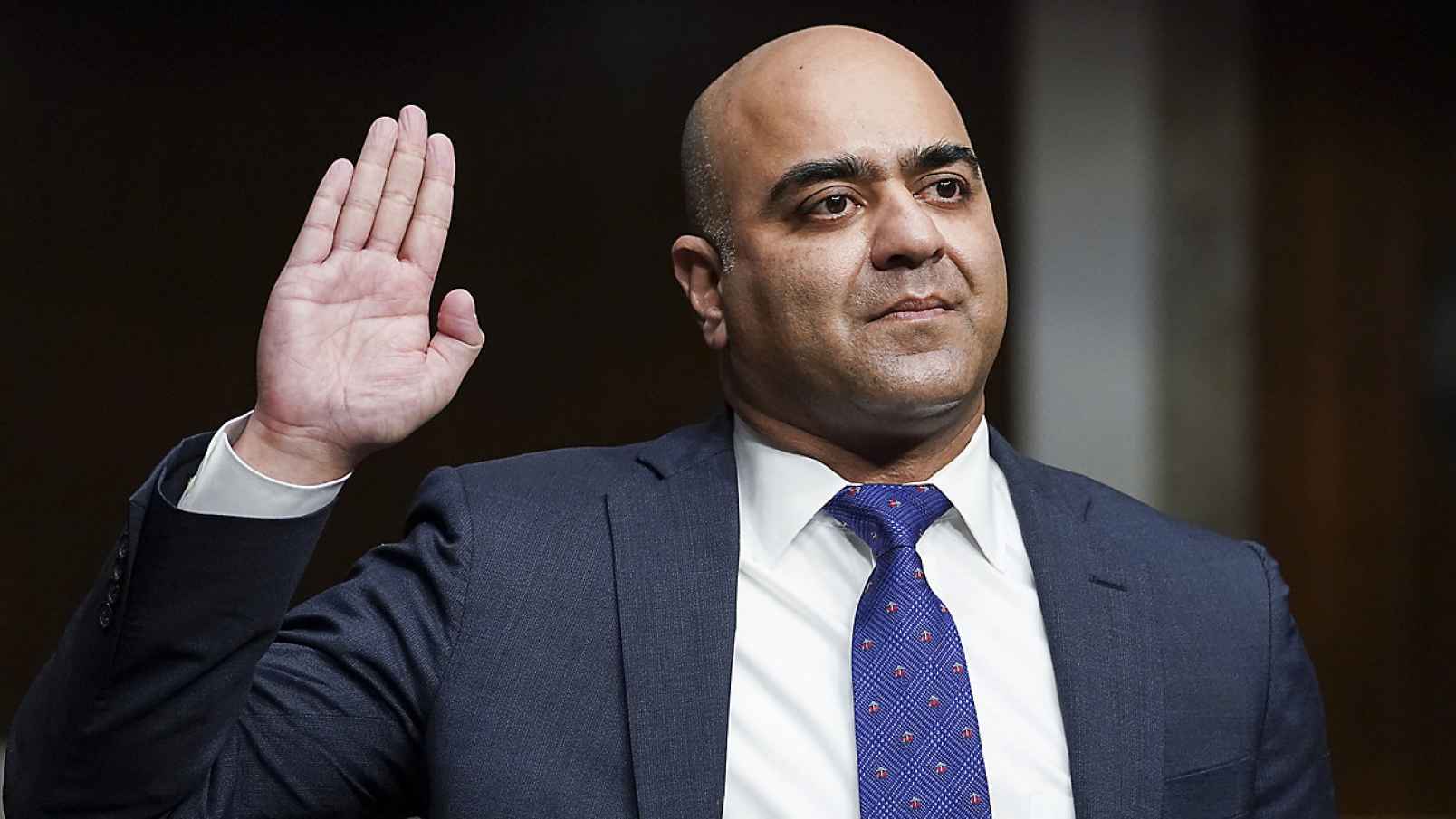
The U.S. Senate’s recent confirmation of Zahid Quraishi as America’s first Muslim federal judge to a lifetime position on the District Court of New Jersey raises some concerning questions.
First and foremost, there is the question of his faith. Does it matter if Zahid Quraishi is a Muslim? The Left would, of course, maintain that raising the Muslim identity of Quraishi is racist, bigoted and “Islamophobic.” But those who understand the reality of Sharia – and the fact that Islam is not a race — understand that this matter is more complicated than what might first meet the eye.
It may very well matter if Quraishi is not just a Muslim “by name” – or just a “secular Muslim” by birth heritage. Indeed, if, as an adult adherent to Islam, he devoutly recites the Shahada — “There is no god but Allah, and Muhammad is the Messenger of Allah” – then Quraishi’s Muslimness could matter very much. That’s because it could indicate whether or not Quraishi would ever uphold aspects of Sharia – Islamic law – in his legal rulings.
As a survivor of Sharia law, I can tell you: Sharia matters — and in the most horrendous and painful of ways.
It is vital to understand that in Islam, Allah’s Law is supreme for Muslims, above all other laws and legal systems. And that poses a problem for America when Islam resides on its territory, because Sharia is completely incompatible with the U.S. Constitution and the foundations of a free society.
Quraishi’s relationship to Islam, therefore, matters a great deal — seeing that his new position entails significant power and influence in America.
So let’s dig a little bit deeper on Quraishi.
The Hamas-linked Council on American-Islamic Relations (CAIR) surprisingly did not come out and cheer Quraishi’s appointment — as one might have expected them to do. Instead, the Muslim “civil rights” organization appeared to be quite furious about him. Zahra Billoo, head of CAIR’s San Francisco branch, issued a statement affirming that she “would much rather have a white Christian judge with progressive values… It’s not enough that he is Muslim. In fact, it’s insulting.”
It appears that the problem for Billoo and CAIR is that Quraishi is not a Muslim from an apparent “list” of “20 to 50 Muslims who have been in the fight” for “social justice.” One unnamed Muslim politician who complained to Slate magazine about Quraishi’s appointment echoed the same theme: “We don’t know what his stances are on civil rights because you can’t find one article or anything that he’s written publicly about the Muslim struggle in the last 20 years post-9/11.”
For those concerned about Quraishi’s potential ties to Sharia, this negative disposition from the “Sharia camp” toward the Muslim judge might appear to be good news. But is it?
CAIR’s concern about Quraishi’s supposed lack of support for “progressive values” appears to be a good sign in light of CAIR’s own record of opposing counterterror measures and slandering opponents of jihad and Sharia tyranny. However, CAIR’s disposition toward Quraishi tells us little, if anything, about the key issue at stake: does the judge hold Islamic values or not?
The narrative takes another peculiar twist when we examine what transpired during Quraishi’s questioning before the Senate Judiciary Committee: When asked by Committee Chair, Democrat Senator Dick Durbin: “What do you know about Sharia law?” Quraishi answered that he knew “nothing about Sharia.“
Really?
Quraishi knows “nothing” about Islam or Islamic Law?
Christine Douglass-Williams has commented on Quraishi’s dubious answer:
“Virtually everyone knows something about the Sharia. In his position, Quraishi is likely to know a lot, and was probably fibbing, and not in an intelligent way, either. It isn’t possible that a man of his standing, who ‘has served as a military prosecutor and Army captain in Iraq, as an assistant U.S. Attorney who has tried cases of public corruption, organized crime and financial fraud, and as a white-collar criminal defense lawyer’, would know ‘NOTHING’ about Sharia.”
True indeed.
What makes the matter even more peculiar is that when one pulls up Quraishi’s questionnaire answers for the Senate Judiciary Committee, one finds that he is mentioned as a “Muslim” many times in his “Honors and Awards” list. So Quraishi is praised, rewarded and held in acclaim by the Muslim community for his achievements in light of his Muslimness, but he personally doesn’t know anything about Islamic law at all?
Could it be that Quraishi might actually not be the incidental Muslim he postures as being? Could it be that he has been recognized and awarded by important prominent Muslim organizations because they gauged that, among other things, he actually is somewhat of an adherent Muslim after all?
Is it possible that CAIR might really not be as upset as it is claiming to be about Quraishi’s appointment? Or maybe it is upset, but not for the reasons it has given? Could it also be that certain players involved in this narrative are engaging in some form of taqiyya – the command in Islam for Muslims to deceive non-Muslims?
Would it also be out of bounds to ask: even if Quraishi is not an adherent Muslim, is it legitimate to be concerned that he one day could become one?
It is vital to stress at this point that Islam is not just a “religion” the way that Christianity and Judaism are religions. Islam is much more than a “faith.” For example, like Judaism, Islam has a legal system — but Islamic Law extends far beyond any Judaic (or even secular) legal system. Sharia embodies all the commands of Allah and all the examples of Muhammad-as divine law that must be implemented in all areas of life.
Qur’an 33:21 is just one verse of many that confirms that Muhammad is “an excellent pattern” for Muslims to follow. It would do well for people to keep in mind that the “excellent” examples that Mohammed set for his followers included the following: marrying a six-year-old girl, A’ishah, and having sex with her when she was nine (Sahih al-Bukhari 5134); encouraging rape of female captives (Qur’an 4:24); stating that women are stupid (Qur’an 2:282) and that hell is comprised of mostly women (Bukhari 29); commanding men to beat their wives (Qur’an 4:34); and being merciless to a woman who had been beaten so brutally that her bruise was green (Bukhari 5825).
Muhammad also disparaged black people (Bukhari 7038). He murdered between 600 and 900 Jews in one battle, and then distributed the captive women as sex slaves (Ibn Ishaq, pp. 464, 511-512).
With some of these matters in mind, the question surfaces: would or could an American Muslim federal judge consider such material as a basis for his rulings? According to Islamic law, a Muslim judge must do so. Sharia mandates that no true Muslim is obligated to obey the laws of a non-Muslim country. Qur’an 33:1 commands to “not obey the disbelievers and the hypocrites.” Qur’an 4:60 says that those who “refer legislation” to the non-Muslims are led “far astray.” And Qur’an 9:3 says that “Allah is disassociated from the disbelievers, and [so is] His Messenger.” According to Islamic tradition, the revelation of that last verse allowed Muhammad to break the Treaty of al-Hudaibiyah.
Let us be clear: an American judge who follows Muhammad’s example can take an oath to uphold the U.S. Constitution, and not really mean it. In fact, Muhammad instructs such a judge exactly what to do in this situation: “if I take an oath and later find something else better than that, then I do what is better and expiate my oath.” (Bukhari 5518)
The supremacy of Islamic Law over all other laws still applies today. The Islamic website International Shariah Movement is run by certified Islamic scholars. Its post “Obey the Law of the Land?” cites Qur’an 33:1.
Under Sharia, if a woman is raped, a Muslim judge must disregard any forensic or non-witness evidence, because Qur’an 24:13 requires “four male witnesses” for a rape conviction.
A beaten woman may also easily be denied divorce, because Qur’an 4:34 commands that “Men are in charge of women,” and so may “strike them.”
That is exactly what a Muslim judge in an Iranian Islamic court told me personally when I was a 15-year-old child bride, desperate for a divorce to escape the beatings. In fact, a beaten woman who leaves Islam must be hunted down and murdered, according to Islamic law, because Muhammad said, “Whoever changed his Islamic religion, then kill him.” (Bukhari 6922)
With all these realities in mind, it is clear that if we cannot at least ask Judge Zahid Quraishi some questions regarding his adherence, or non-adherence, to Islamic law, or even understand that the issue of Quraishi’s Muslimness is an important one to address, then America is in deep trouble.
As an individual who suffered under Sharia, and was able to escape its monstrous clutches, I strongly encourage my fellow Americans to ask the right questions in this vital – and troubling – narrative about America’s new federal judge.
Articles
Iran Elects Mass Murderer as Next President
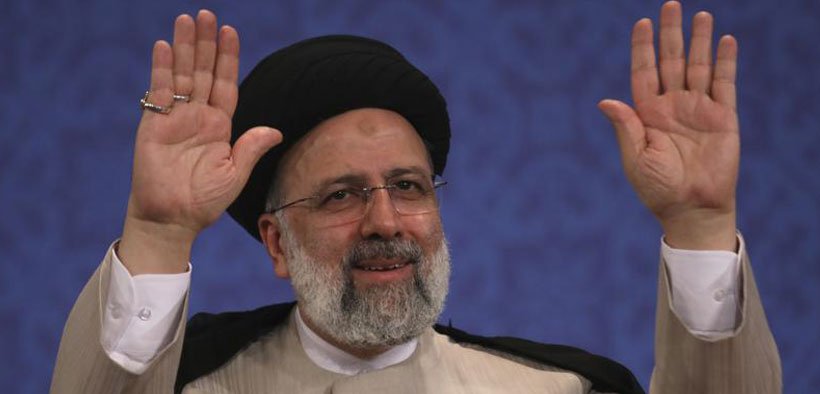
The ‘election’ for president is over in Iran. The grand ayatollah handpicked Ebrahim Raisi who was then ‘elected’. He’s not just a hardline jihadist, but he’s a mass murderer and a big-time one. And more importantly, he’s very proud of his background.
He’s accused by the world of having personally supervised the trials and executions of somewhere between 5,000 and 40,000 Iranians in the 1980s. He has personally been sanctioned by most of the world, including the United States, who cannot even legally talk to him.
Meanwhile, Raisi calls himself a defender of human rights when asked about the mass executions. The guy is a world-class war criminal. He ran the death panel that sentenced and executed tens of thousands of political prisoners at the end of the 1980s. He is now the leader of the world’s most notorious state sponsor of terrorism.
The first thing we have to know about Ebrahim Raisi is that these charges of mass murder as far as the Iranian mullahs are concerned, are not a problem but rather they are a bonus. It’s not that they picked him in spite of his terrible record. They picked him because of his terrible record.
Domestically, the ayatollah is sending a message to the Iranian people who remain discontented in large part with the Islamic regime. The message is simply put, “ you are not going to be able to dissent. There will be no ability to protest. Anybody who expresses any kind of public disagreement, it’s very clear what kind of treatment they’re going to get with Ebrahim Raisi as the President of Iran.”
Keep in mind, Raisi was not elected. He was selected. He was selected by the supreme leader of Iran, who is the real power in the country, and he is going to execute the policies of the supreme leader. The supreme leader’s disposition toward his own people and toward the world is revealed by the person he selects to be the President of Iran.
By picking Raisi, Ayatollah Khamenei is not only showing that he’s going to crack down harshly on dissent within Iran, but he’s showing that he understands that with Biden’s handlers running the United States, that the United States is weak, is not going to stand up to him and this is his time to step up Iran’s support for terrorism worldwide, supporting Hamas, supporting Hezbollah, supporting Palestinian Islamic Jihad.
The Iranian regime has also in the past supported al-Qaida and the Taliban, and other jihadi groups as well as and this is much less known. It’s clear that Iran understands that leftism is corrosive to Western civilization, and they want to destroy Western civilization. Therefore Iran will support both the leftists and the Islamists around the world who are anti-America and anti-Israel.
From now on, we can expect to see increased belligerence on the part of Iran. And Raisi’s ascension to the presidency means that Iran is going to be strutting around and sponsoring terrorism around the world and cracking down on its own people within the country.
By Barry Nussbaum, Son of Auschwitz survivors, Founder American Truth Project, Foreign and Domestic Policy Commentator

